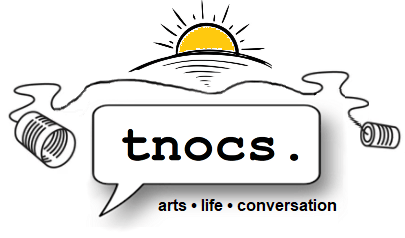It was the fall of 1983 and I was in the first semester of my freshman year at a midwestern university.

Word was spreading around the dorm that Timothy Leary was coming to campus to give a lecture.
As Phylum of Alexandra detailed in a recent article here, Leary became one of the primary voices of the counter cultural movement of the 60s, as a pioneer in experimentation with hallucinogenic drugs such as LSD. I would have had no connection with him or any interest in hearing what he had to say, were it not for the fact that the Moody Blues sang about him in, “Legend of a Mind:”

A song which I knew inside and out. (That sprawling flute solo from Ray Thomas is legendary in and of itself.)
It seemed surreal to me that the subject of a song by my favorite band was going to be in the flesh at our university. I knew I had to go.
A guy from my dorm floor, Jeff, had also heard about it and we decided to go together. Soon after we arrived and were seated, much to my surprise, “Legend of a Mind” was playing over the P.A. as we waited for the talk to start. As I explained my personal connection with the band and my love of the song to Jeff and others around us, I was feeling overwhelmed with excitement.
Timothy Leary entered the stage to great applause.
His message was all about questioning the establishment, which should not have come as a surprise. At one point he said, “Do you know what the definition of an adult is?”

“An adult is someone who has stopped growing.”
We may have been far removed from the 60s, but he clearly had the bulk of the audience of college students in the palm of his hand. Then he started talking about Christianity, stating that the idea that Adam and Eve sinned and now the guilt was on all of our heads was a bunch of malarkey. This didn’t sit well with me, and I had a difficult time listening to anything else he had to say after that.

When the talk was over, he invited anyone to come up that wanted to ask a question or make a comment.
I told Jeff, “He said some things about Christianity that weren’t right. I have to say something. I’m going up there.” Jeff strongly advised against it. My basic survival instincts were also urgently imploring me not to do it.
But I got up anyway and stood in line.
The first person I remember stepping up to the microphone was a priest from my church who was not much older than we were. I couldn’t really understand much of what he was trying to say; he kept using the word “dichotomy”, which was not a word I had heard before. He seemed to be responding to Leary’s message from a theological or intellectual perspective.

Whatever it was, Leary didn’t seem too impressed with it, and the crowd was growing restless.
It turned into flagrant hostility moments later when an older woman got up and immediately began screaming at Leary, accusing him of turning an entire generation into vegetables. Leary openly mocked her and the crowd rained down boos and insults at her.
It was getting ugly.
I seriously began to question my own sanity for staying in that line, but I stuck it out and when it was my turn, I was practically trembling. I nervously restated what he had said about Christianity and said, “I have only one problem with that. I believe in all of it”. He put his hand on my head and called me a poor misguided soul, and laughter began to fill the room.
Things were off to a bad start. I continued anyway by saying that I did not live my life in guilt the way he had described it and that Jesus set me free from that guilt.
I couldn’t have realized in my naivety that I had said the only thing he wouldn’t try to argue against. I shared my personal experience. When I finished speaking, somebody shouted from the back of the room, “And that’s okay, man!” Timothy Leary shook my hand, asked the audience to give me a round of applause, and I went back to my seat. And that was that.
Looking back on it, the concept of actually letting Jesus take on the guilt of my sin was more complicated for me at that point, and it was something that was going to take a lifetime to even begin to learn.

Did I really live like I believed that Jesus had set me free from guilt? In reality, it could be a day-to-day struggle.
Nevertheless, believing that this tremendous grace existed gave me the courage to continue to strive to answer the call to live and love as Christ did.
On that particular day, that call meant facing my fear and standing up to speak on behalf of that faith and the promise and hope it offered, at the risk of being ridiculed and rejected by hundreds of people. It was without question the boldest thing I had ever done in my life up to that point.
The next day, Barry, an art major from the dorm, saw me in passing and said, “Hey, I saw you get up there last night at the Timothy Leary talk. I disagreed with everything you said, but I respected the fact that you got up there and said it.” I thanked him for his words and we both wondered aloud why the priest kept using the word ‘dichotomy and what it even meant.
A number of months later, I met the guy who had shouted out encouragement to me from the back of the room. It turned out he and I had gone to high school together.

Even though we never spoke in high school, I would see him in the smoking pit in the courtyard and always thought he looked cool with his long hair and Molly Hatchet jean jacket.
Turned out he was going through a transformation himself. My willingness to get up and speak and his subsequent affirmation had been a blessing to us both.,’
As the years went on, I found myself understanding Timothy Leary’s and others’ dismissal of Christianity more than I had that day in college.
It is a vast understatement to say that Christians hadn’t always been the best example of what faith was to be all about, and often found a way to weaponize the concept of sin and guilt, myself included. I learned from my own life that disproportionate or misdirected guilt and the resulting shame can be crippling. And overall, I could certainly see how the whole idea of faith could sound crazy.
Much later in life, I suddenly began wondering myself at times if indeed it all was true, or even if God was real. This was an alarming development, as I had never questioned any of it that deeply before.
Doubt is not easy for me to talk about or own. What I can say is: no matter how difficult the struggle, upon hearing Jesus’ words in the Gospels, I’m drawn back to the core message, time and again, and it has all to do with the desire to find my purpose in loving as I have been loved. That has not changed.
I’m encouraged by the words of Southern Gothic author Flannery O’Connor, herself a Catholic:

“It is much harder to believe than not to believe. If you feel you can’t believe, you must at least do this: keep an open mind. Keep it open toward faith, keep wanting it, keep asking for it, and leave the rest to God.”
Timothy Leary passed away in 1996.
In his remaining time on earth, I can’t imagine he would have remembered our brief interaction, but I have not forgotten that day. For so many reasons, it remains a seminal moment in my life.
Timothy Leary’s dead. No no no no, he’s outside, looking in.
– The Moody Blues, 1968

Let the author know that you liked their article with a “Green Thumb” Upvote!





This is a great story, rollerboogie! Despite loving the music of the 60s, I’ve never studied deeply the counterculture that swirled around the musicians of those days. A lot of it seems pretty shallow to me, and yet, as in most things, one can understand some of the reasons for those directions of thought, and some good can be found in most philosophies.
.
As another person of faith, and one that was a missionary for two years…I’ve found very little value in barbed debates about religion. Polite conversation is usually much better, and then, only if both parties are actually seeking the conversation. But even in a debate, one thing that is difficult to respond to is simply a statement of your belief. Your testimony. No one else may agree with your statement, but most would agree that it’s your prerogative to believe it (“And that’s ok, man!” – Molly Hatchet guy). And in the end there is some satisfaction that you’ve stated your beliefs.
.
And I’m not sure that I would have been as brave as you.
Well said, and thank you, Link.
Agreed, Molly Hatchet guy got it right. I’m not a believer or a disbeliever, and that’s OK, man. Be comfortable with who you are and who everyone else is, too.
Stephen Hawking said, “One can’t prove that God doesn’t exist.” I’d add that believers in God A can’t prove that God B doesn’t exist. Problems only come when believers in God A disrespect (and sometimes kill) believers in God B. That has nothing to do with God A or God B and everything to do with our failings as humans.
Things to ponder for sure.
Good for you, seriously! There is nothing more essential in life than finding your voice and speaking your truth.
Thank you cst. You have been a good example that here.
Thanks so much for sharing RB! Several of you statements mirror my upbringing and my continued path as a Christian. I often doubt and need God’s grace. I am thankful for respectful discussion and the freedom in the US for all of us to believe (or not believe) what we want.
Thanks for the Flanner O’Connor quote as that was a source of inspiration for today.
Glad you stood up. As Link mentioned, I would not have been able to stand up like that at the same age.
Thank you mjevon. Glad you found some inspiration here today and I too am thankful to be able to share experiences like this here and that the conversation is open and honest. It’s not something I take for granted.
I don’t quite agree with Flannery O’Connor’s quote, though I appreciate the spirit of her take. I think plenty of people can lazily believe, just as plenty of people can lazily disbelieve. What’s hard is to really think about the stance, to sit with it and live with it, and reconcile it with the totality of your lived experience. For believers and nonbelievers alike, doubt and despair will come at some point to any who think about their positions. But from that thought your convictions are all the stronger. Or at least your sense of humility.
That’s a fantastic story. I do kind of lean on the side of the woman who accused Leary of turning a generation into vegetables, but his temptations had a logic to them. But it’s good that the experience ultimately got you to think more about your faith, as a good temptation should do, I guess. Regardless of where it took you, it was brave to stand up like that and speak for yourself. That’s an admirable trait.
I appreciate what you have to say and that we have a place where we can have thoughtful conversations like this. And thank you for providing the inspiration for me to share this story in the first place. I hadn’t thought of doing it until I saw your article.